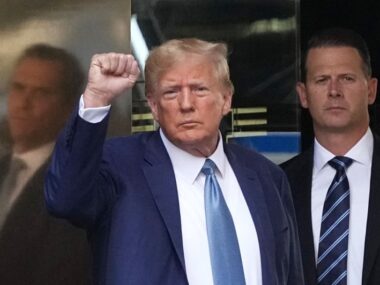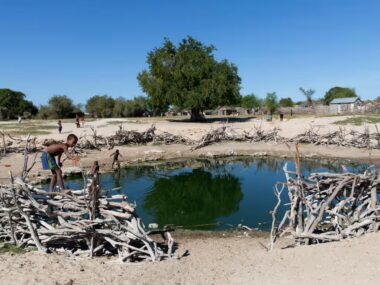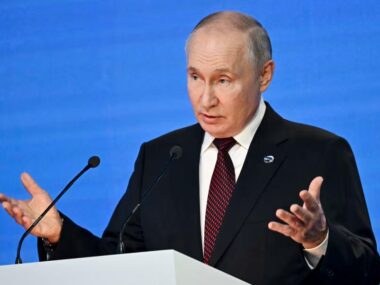Breaking Point: How Nations are Responding to the Ongoing Current Affairs Crisis
As the global landscape continues to shift under the weight of unprecedented challenges, nations are finding themselves at a breaking point in how they respond to ongoing current affairs crises. From geopolitical tensions and environmental disasters to economic instability and social unrest, countries worldwide are juggling multiple crises simultaneously while navigating the delicate balance between domestic needs and international responsibilities.
The Escalating Nature of Current Affairs
The nature of current affairs has become increasingly complex, often intertwining local issues with global implications. The COVID-19 pandemic has acted as a catalyst, exacerbating existing problems while unveiling the fragile interconnectedness of health, economy, and governance. Countries vulnerable to economic shock waves found themselves grappling with the dual challenge of recovery and preparation for potential future crises.
Moreover, rising geopolitical tensions, including conflicts in Eastern Europe and the ongoing struggles in the Middle East, have tested diplomatic relations. Nations are forced to take sides or maintain neutrality in a landscape where alliances are increasingly tenuous and the consequences of inaction can be severe.
Economic Responses and Recovery Plans
Economic recovery has emerged as a top priority for nations striving to mitigate the fallout from the pandemic and other crises. Governments are implementing various fiscal and monetary policies aimed at reviving economies, including stimulus packages, tax relief, and investments in infrastructure. For instance, countries like the United States and various EU nations have rolled out multi-trillion-dollar recovery plans designed to boost job creation, support businesses, and ensure social safety nets for vulnerable populations.
Emerging economies, on the other hand, face unique challenges and are turning to international assistance, such as partnerships with the International Monetary Fund (IMF) and the World Bank, to navigate financial turmoil. These nations are balancing the need for immediate relief with the demand for long-term sustainability, pushing for more equitable and inclusive economic reforms.
Environmental Crises and Climate Action
The urgency of the climate crisis has led many nations to reconsider their environmental policies in light of recent natural disasters. Wildfires, floods, and hurricanes have highlighted the reality of climate change, prompting a global reassessment of how environmental issues are addressed. Countries are increasingly recognizing the need to meet their climate commitments as set out in the Paris Agreement and are investing heavily in green technologies, renewable energy, and sustainable development.
While wealthier nations have more resources to allocate toward climate initiatives, developing countries are advocating for greater support in the form of climate financing and technology transfer. Events such as COP summits have become critical platforms for nations to negotiate commitments, with some countries taking a bold stance advocating for dramatic shifts toward carbon neutrality and sustainable practices.
Social Unrest and Governance Challenges
In many regions, social unrest has become a defining feature of the current affairs crisis. Movements advocating for racial justice, gender equality, and workers’ rights have gained momentum, reflecting a growing frustration with systemic inequalities and the pace of policy reform. Nations such as the United States, Colombia, and various European countries have experienced mass protests that challenge established norms and demand accountability from leaders.
Governments face difficult choices on how to address these movements. Some have responded with dialogue and concessions, while others have resorted to police action or curtailments of civil liberties. The risk of social fragmentation is palpable, compelling leaders to strike a balance between maintaining order and respecting citizens’ rights to protest and express dissent.
The Role of International Cooperation
In an increasingly interconnected world, many nations are recognizing that no country can tackle current affairs crises in isolation. International cooperation has emerged as essential, yet fraught with challenges due to rising nationalism and protectionism. Multilateral organizations like the United Nations and regional bodies are being called upon to mediate conflicts and facilitate collaborative efforts to address shared global threats, including health crises, climate change, and humanitarian needs.
However, the efficacy of these institutions is often undermined by current geopolitical realities, as conflicting interests can hinder decisive action. Nations must navigate the tension between sovereignty and solidarity, learning that collaborative approaches can often yield better outcomes than unilateral actions.
Conclusion: Seeking a Path Forward
As nations reach a breaking point in dealing with ongoing crises, the path forward will hinge on their ability to adapt, cooperate, and reconcile diverse interests. The road ahead is fraught with challenges, but it also presents opportunities for innovation and growth. By harnessing collective strength and fostering inclusive policies, countries can address current affairs crises and build a more resilient and equitable future for all. The world is at a pivotal moment—how nations respond today will determine the global order of tomorrow.











